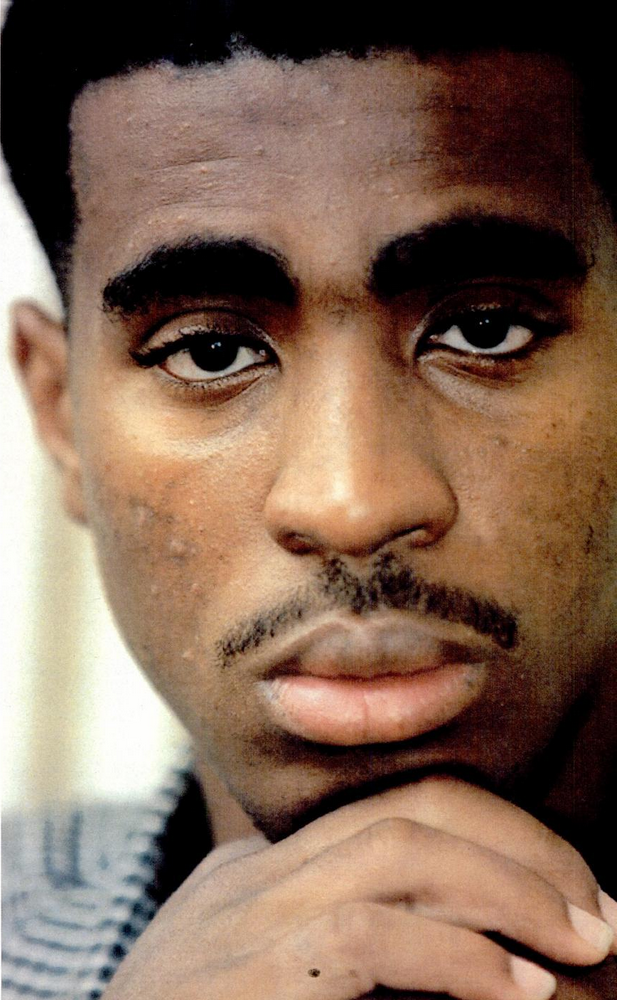Harry Allen’s journey in the world of hip-hop began in a graphic design class at Adelphi University in 1982, where he met Carlton “Chuck D” Ridenhour. This meeting was more than just a chance encounter; it was the gateway into a vibrant hip-hop community centered around the university’s radio station WBAU/90.3 FM. Allen found himself amidst a group of individuals who, much like himself, viewed hip-hop not merely as a genre of music but as a serious cultural movement. This group included future icons of the genre, such as Flavor Flav and Terminator X, who would later join Chuck D in forming Public Enemy, one of hip-hop’s most influential groups.
The early 1980s were a seminal period in hip-hop, and Allen found himself at the heart of it. In 1983, WBAU/90.3 FM played a pivotal role in promoting the genre, being one of the first stations to play Run-DMC’s “Sucker M.C.’s”. This period also saw Allen dabble in photography, capturing the burgeoning local hip-hop scene and its stars. However, after transferring to Brooklyn College, Allen’s interest in photography waned, leading him to put this hobby aside in 1986.
Allen’s contributions to hip-hop culture extended beyond photography and into journalism. He penned insightful articles that shed light on the political ideology behind Public Enemy. His work was crucial in helping the mainstream press, and the public, understand the group’s militant demeanor and confrontational lyrics. Following a controversial interview with Public Enemy’s Professor Griff in 1989, which led to accusations of anti-Semitism, Allen stepped in as the group’s publicist. He played a key role in managing Public Enemy’s interactions with the media, identifying himself as a “hip hop activist and media assassin” and taking on the title of “director of Enemy relations.”
Allen’s influence in the hip-hop world was also felt through his contributions to various esteemed publications like The Village Voice, Essence, Spin, and Vibe. His involvement with Public Enemy wasn’t limited to off-stage activities. He made his first recorded appearance on their 1988 track “Don’t Believe the Hype,” and continued to feature in their subsequent works.
In the early 1990s, Allen was among the first to recognize the potential of the internet in shaping the discourse around hip-hop. He created an online presence for Public Enemy as early as 1991 and later developed the webzine Rap Dot Com. His foresight into the digital world of music was further demonstrated in his participation in a panel discussion at the 1994 New Music Seminar, alongside Chuck D and Adam Curry, focusing on music and the internet.
Allen’s dedication to hip-hop culture led him to found the Rhythm Cultural Institute in 1992, along with KRS-One and others. The institute’s mission was to preserve, define, and promote hip-hop music and culture, with an ambitious goal of creating a fitting “Hip Hop Hall of Fame.” This mission highlighted Allen’s commitment to ensuring that the history and legacy of hip-hop were recognized and respected.
His contributions to the culture continued with his hosting of the “on-air magazine” Nonfiction on WBAI-NY/99.5 FM, starting in 2003. The show featured a diverse range of guests, from musicians to scientists, reflecting Allen’s broad interests and deep intellectual curiosity.
Allen’s diverse career also included a stint at Rockstar Games, where he worked in the public affairs department from 2004 to 2006. He often cites his credit on the hit title Grand Theft Auto: San Andreas as one of his proudest achievements.
In 2007, Allen showcased another dimension of his talents with an exhibition of his photography, “Part of the Permanent Record: Photos From the Previous Century,” at the Eyejammie Fine Arts Gallery in Manhattan. This exhibition was a testament to his artistic eye and his ability to capture the essence of hip-hop culture.
As of September 2014, Allen continued to influence the hip-hop world as an advisor to the Archives of African American Music and Culture at Indiana University. His blog, Media Assassin, remains a testament to his enduring commitment to hip-hop culture and its evolution.
Harry Allen’s multifaceted career – spanning journalism, photography, activism, and beyond – marks him as a significant figure in the history of hip-hop. His work not only contributed to the genre’s growth but also ensured its cultural and historical significance was recognized and preserved for future generations.


